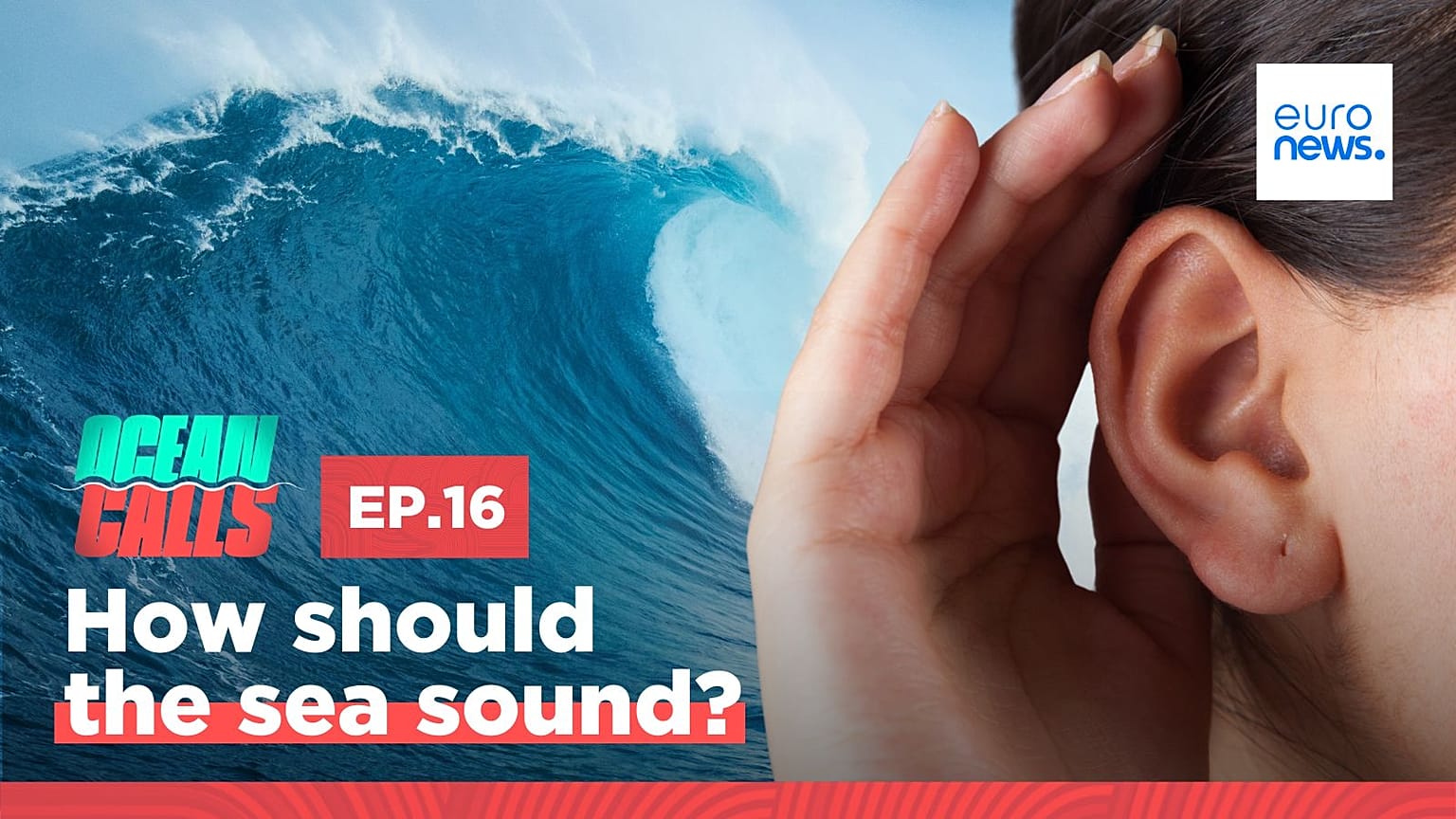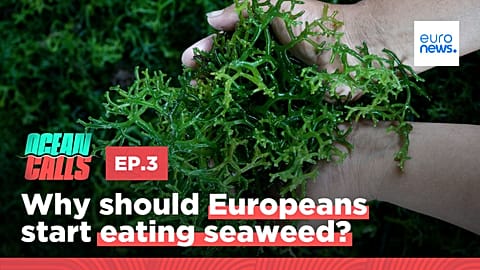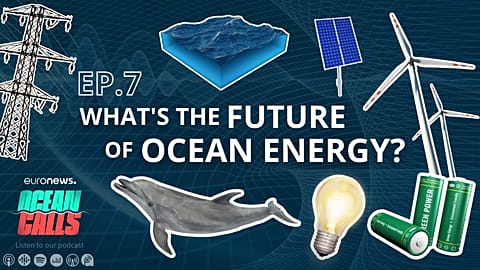In this episode, we listen to experts discussing underwater noise in all its forms. We hear what a happy coral reef sounds like, how Russia's war in Ukraine is hurting dolphins’ ears, and why slowing down ships could drastically change underwater acoustics.
"The underwater world is a world of sound. When sound becomes noise, it has devastating impacts," explains Nicolas Entrup, Director for International Relations at marine conservation organisation Ocean Care, in this episode of Ocean Calls.
The issue of ocean noise pollution has attracted significant attention in recent years due to an increase in human activities like shipping, or oil and gas exploration.
According to Entrup, noise emissions have doubled in European waters within a span of just five years, from 2014 to 2019.
"The widespread emissions from shipping are a huge problem," he says. "For example, in the Mediterranean, there is an increase in the search for oil and gas, along with heavy and intense naval activities involving all imaginable militaries."
Research shows that these anthropogenic noises can interfere with the communication, feeding, mating, and navigation abilities of species, especially amongst marine mammals.
This can lead to behavioural changes, stress, and even physical harm. In some cases, it can even be lethal.
"We know that airguns used in seismic surveys are highly lethal. They can kill plankton larvae or impact certain fish species," says Entrup.
Ocean Care believes that one of the most harmful noises is the sound of shipping, which causes a "constant droning."
The NGO is pushing for regulations to establish maximum permissible noise levels for various human activities in the ocean. Simply reducing the speed of ships could be a solution to achieve those goals.
"If you reduce the global speed by 10%, you would reduce noise emissions by 40%," says Entrup.
The war in Ukraine threatens Black Sea cetaceans
While regulating industrial shipping can be a straightforward solution to make our oceans quieter, some man-made noise, such as that linked to military action, is not as easily regulated. This is primarily due to countries' security concerns.
On 24th February 2022, Russia initiated devastating strikes on Ukrainian cities, targeting critical locations including the Black Sea ports of Odesa, Chornomorsk, and Mariupol, situated along the adjoining Sea of Azov.
Since the start of the Russian invasion, scientists have been documenting mass deaths of dolphins on the Black Sea coast of Ukraine, Russia, Romania, Bulgaria, and Turkey. Hundreds of deceased animals have washed ashore with no visible signs of injury.
Pavel Godlin, a leading researcher at the Department of Evolutionary Morphology, Schmalhausen Institute of Zoology in Kyiv, Ukraine, believes this is a direct consequence of submarine missile launches.
"Fortunately for us, the missiles do not reach Ukrainian territory. However, unfortunately for all marine life, they fall into the water," explains Godlin.
The submarines are positioned approximately 50 metres underwater, and they generate substantial noise pollution.
"Russia's war on Ukraine has become an unexpected source of varied and loud noise," he says.
Undersea mining: a future source of devastating noise pollution
We are aware of the noise pollution caused by shipping, warfare, and the search for new oil and gas. However, what about deep-sea mining, an industry that is still in its developmental stages?
"Mining is not yet a commercial reality in the deep sea. Therefore, we do not have a complete understanding of the sounds it may produce," explains Kirsten Thompson, a population biologist at the University of Exeter in the UK, and the author of a study on the potential impacts of deep-sea mining.
Thompson’s study is based on existing scientific information which allows her to predictthe effects of mining on ocean ecosystems.
"I believe it is reasonable to assume that if deep-sea mining becomes commercially viable, it will operate around the clock and at various depths of the water column," she explains.
"Consequently, one would expect a wide range of emitted [noise] frequencies." The region expected to face the greatest impact from deep-sea mining is known as the Clarion-Clipperton Zone. This is a vast, mineral-rich area in the Pacific Ocean, which is roughly the same size as India.
"We anticipate a continuous emission of noise, resembling construction noise. This could potentially discourage animals from [coming to] the area, and we may not fully comprehend the implications for those populations," Thompson warns.
‘Happy’ sounds restore coral reefs
"We all teach our children that fish don't make any noise at all (...) but actually fish are really vocal," explains Timothy Lamont, a marine biologist at Lancaster Environment Centre in the UK.
He studies healthy coral reefs to facilitate the restoration of degraded ecosystems. Lamont explains that a healthy coral reef is an incredibly noisy ecosystem, filled with diverse and unusual sounds.
The acoustic environments around coral reefs are influenced by factors like reef composition, species diversity, and environmental conditions.
Different reef habitats and locations possess distinct sound profiles. Lamont's extensive research across the Indo-Pacific in 2020 revealed that young fish are attracted to reefs with a ‘healthy' soundscape.
However, the coral bleaching events that plagued the Great Barrier Reef in 2016, 2017, and 2020 caused significant changes to the reef's sounds and made it less appealing to young fish. Coral bleaching is when corals lose their bright colours d because of climate change or water pollution. Once bleached, corals become more vulnerable to disease and death.
In response, Lamont's team tried to attract fish to degraded reefs by playing ‘healthy reef’ sounds. This proved successful and the amount of fish settling in the area doubled.
Lamont nonetheless warns that sound-based coral repopulation is not a solution by itself, and he says additional efforts are required to ensure the availability of food and resources in these damaged habitats. To find out more about the impact of sounds on our oceans, listen to the full episode.
The Ocean Calls podcast is made possible by the European Commission's Directorate-General for Maritime Affairs and Fisheries.
























